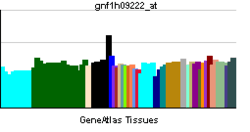CLDN20
Claudin-20 is a protein that in humans is encoded by the CLDN20 gene.[3][4] It belongs to the group of claudins.
References
Further reading
- Kniesel U, Wolburg H (2000). "Tight junctions of the blood–brain barrier". Cell. Mol. Neurobiol. 20 (1): 57–76. doi:10.1023/A:1006995910836. PMID 10690502.
- Heiskala M, Peterson PA, Yang Y (2001). "The roles of claudin superfamily proteins in paracellular transport". Traffic. 2 (2): 93–8. doi:10.1034/j.1600-0854.2001.020203.x. PMID 11247307.
- Tsukita S, Furuse M, Itoh M (2001). "Multifunctional strands in tight junctions". Nat. Rev. Mol. Cell Biol. 2 (4): 285–93. doi:10.1038/35067088. PMID 11283726.
- Tsukita S, Furuse M (2003). "Claudin-based barrier in simple and stratified cellular sheets". Curr. Opin. Cell Biol. 14 (5): 531–6. doi:10.1016/S0955-0674(02)00362-9. PMID 12231346.
- González-Mariscal L, Betanzos A, Nava P, Jaramillo BE (2003). "Tight junction proteins". Prog. Biophys. Mol. Biol. 81 (1): 1–44. doi:10.1016/S0079-6107(02)00037-8. PMID 12475568.
- Berg M, Geisel A, Necheles H (1975). "The influence of carbenoxolone on steroid-induced ulcer and mucus secretion in the rat". The American journal of digestive diseases. 20 (2): 134–7. doi:10.1007/BF01072339. PMID 1124737.
- Strausberg RL, Feingold EA, Grouse LH, et al. (2003). "Generation and initial analysis of more than 15,000 full-length human and mouse cDNA sequences". Proc. Natl. Acad. Sci. U.S.A. 99 (26): 16899–903. doi:10.1073/pnas.242603899. PMC 139241
 . PMID 12477932.
. PMID 12477932.
- Mungall AJ, Palmer SA, Sims SK, et al. (2003). "The DNA sequence and analysis of human chromosome 6". Nature. 425 (6960): 805–11. doi:10.1038/nature02055. PMID 14574404.
- Gerhard DS, Wagner L, Feingold EA, et al. (2004). "The Status, Quality, and Expansion of the NIH Full-Length cDNA Project: The Mammalian Gene Collection (MGC)". Genome Res. 14 (10B): 2121–7. doi:10.1101/gr.2596504. PMC 528928
 . PMID 15489334.
. PMID 15489334.
- Liu F, Koval M, Ranganathan S, Fanayan S, Hancock WS, Lundberg EK, Beavis RC, Lane L, Duek P, McQuade L, Kelleher NL, Baker MS (2015). "A systems proteomics view of the endogenous human claudin protein family". J Proteome Res. doi:10.1021/acs.jproteome.5b00769. PMID 26680015.

 . PMID 16836752.
. PMID 16836752. . PMID 12477932.
. PMID 12477932. . PMID 15489334.
. PMID 15489334.